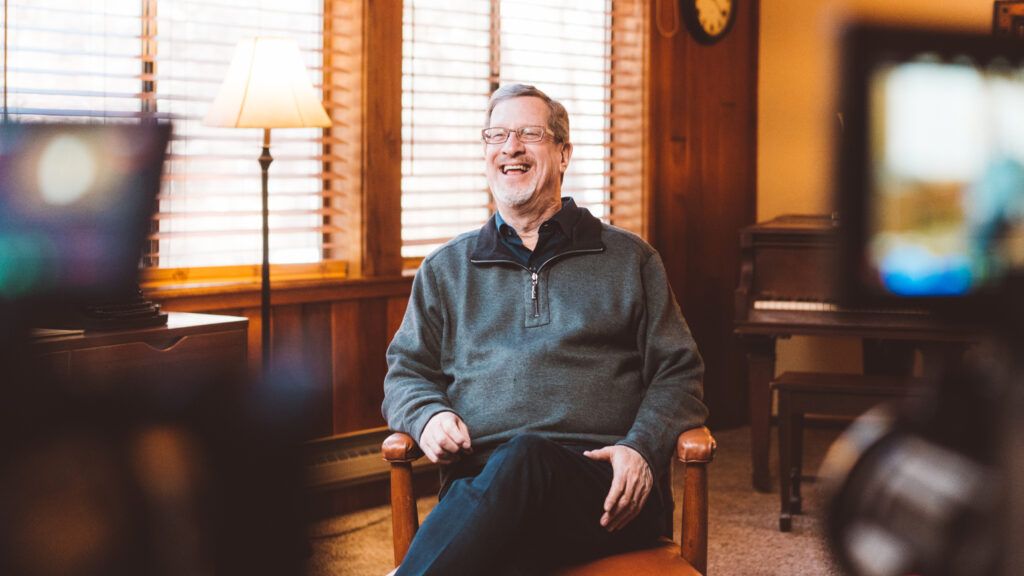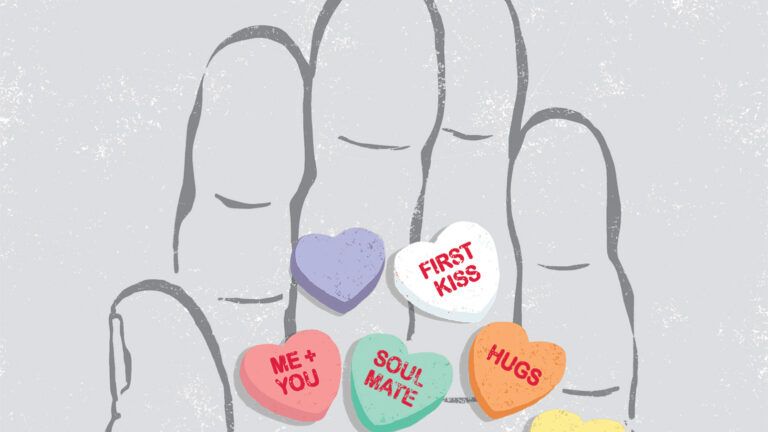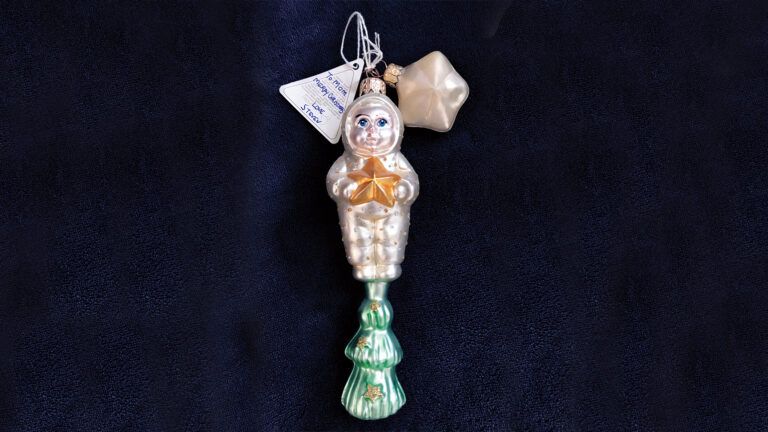New York Times bestselling author Lee Strobel is a man in search of answers—and as a former investigative journalist for The Chicago Tribune, he is not afraid to ask hard questions. After a harrowing medical crisis, Strobel began a journey of understanding exactly what happens to us after we die. His bestselling book, The Case for Heaven, seeks to answer that all-important question. Now, the question is making its way to the big screen, in a new documentary film directed by Mani Sandoval, also titled The Case for Heaven. In it, Strobel interviews various experts and skeptics— like John Burke, Dr. Sharon Dirckx, and Francis Chan— about our understanding of heaven.
Lee Strobel talked with Guideposts.org about his experience, his new documentary, and the amazing evidence he found that proves heaven is real.
GP: You had a profound experience that set you on this journey. Can you tell us about that?
Lee Strobel: Several years ago, my wife, Leslie, found me unconscious in our home. She called an ambulance, and I woke up in the emergency room. The doctor looked down at me and said, “You’re one step away from a coma, two steps away from dying.” Then I fell unconscious again.
I had an unusual medical condition called hyponatremia, which is a severe drop in blood sodium level. My brain cells took in moisture and began expanding in my head. If you have it, you can go unconscious, eventually have seizures, go into a coma and die. I was in the hospital for quite a while, and doctors were able to save my life.
GP: Why did this experience make you want to study the afterlife?
Lee: I came close to dying. It was a brush with death. It was a very clarifying experience because when you’re in that position, you don’t know what’s going to happen. Nothing becomes more important than what happens when you close your eyes for the last time in this world.
This experience made me think about how we’re going to spend a lot more time in eternity than we’re going to spend in this world. So, it’s worth our time. It’s worth our exploration to come to a strong resolution and conclusions about what happens in life to come. Even though I am a Christian and I believe what the Bible teaches about the afterlife, I’ve still got a skeptical background. My degrees are in journalism and law. So, I wanted to know, is there any evidence that the Bible’s telling us the truth about life after death?
GP: Yes, despite your experience and your beliefs, you sought to search for heaven outside of preconceived notions. You wanted to look at it from experience. Why did you want to do that and how?
Lee: I was interested in looking at not only evidence from within the Bible, but also what evidence there is outside the Bible that supports what the Bible tells us. If the Bible is telling us the truth, you would expect that there would be other evidence that would support that.
I wanted to look at the question of near-death experiences, which I was very skeptical about. I thought they were explainable, such as a lack of oxygen to the brain or something like that. But I needed to see if there’s confirmation in them of what the Bible teaches.
According to the Bible, an aspect of the afterlife is that our consciousness, or our soul, separates from our physical body. If that is true, that would mean that there would be some evidence that indeed our soul does survive our clinical death.
GP: Is this why you felt it was important to include our search for the soul?
Lee: Absolutely. Because if we are just a physical body, then when we die, we are gone. But if we are a hyphenated creature that is a body and a soul, then our soul can survive our physical death. So, I think it was vital to look at. Is there evidence for the soul?
That’s why I interviewed Dr. Sharon Dirckx, who has a PhD in neuroscience from Cambridge University. We discussed the evidence that indeed we have a soul that is distinct from our physical body and yet interacts with our physical body. According to Dr. Dirckx, all we need is one corroborated case of a near-death experience to show conclusively that indeed our consciousness does survive our clinical death.
GP: And you have found that in your research?
Lee: We have not only one, but multiple cases where people saw things or heard things during their out of body experience that they would not have been able to see and hear if that experience wasn’t legitimate. For example, the 1984 case where a woman named Maria, who died and was separated from her body, saw a tennis shoe on the ledge of the hospital roof. It was later confirmed to be true!
The number of cases is really staggering. It’s a well-researched area. There was one study [in the book Handbook of Near-Death Experiences: Thirty Years of Investigation] of 93 patients who made verifiable observations while out of their physical bodies during a near death-experience. 92percent of those observations were completely accurate. Another 6 percent were almost totally accurate. There’s also been 900 scholarly studies done of near-death experiences over the last 40 years and published in scientific and medical journals. The Lancet, a British medical journal, published a peer reviewed article that said that none of the alternative explanations in near-death experiences can fully explain the phenomenon. So, something else is going on.
GP: Why is it that some people who have a near-death experience oftentimes have difficulty explaining what they experienced?
Lee: Near-death experiences provide a little more technicolor and brings home the reality that our belief in the afterlife is not based on wishful thinking. The afterlife is fundamentally different. Time will be different. The number of dimensions will be different. The colors will be different.
For example, in this world, we see certain colors that are based on the color spectrum from the light of the sun. Yet in eternity, the color spectrum will be based on the light of God. We’ll be able to see colors that we can’t even imagine in this world. Yet we do have people returning from near-death experiences describing that very phenomenon. Those are very difficult things to communicate to people who have not shared that experience.
GP: You interviewed quite a few people in this documentary. What is the most important thing you learned from them?
Lee: One of the most surprising things came from John Burke. He is currently pastor of a large church in Austin, Texas. He is also a researcher of near-death experiences.
John studied a thousand near-death experiences over a period of about 30 years. He remarkably found that, when you study what takes place during a common near-death experience, it is consistent with Christian theology. He wrote a book called Imagine Heaven where he backs that up verse by verse from the Bible. That was a powerful conclusion.
GP: What did this conclusion mean for your own study of near-death experiences?
Lee: It gives credibility to what the Bible tells us. We have corroboration that can give us confidence that the Bible’s teachings about surviving death are accurate. Like I said, I came into this as a skeptic thinking that I was going to discover this is an over-hyped phenomenon. But I walk away from this study with an increased confidence that the Bible is true. I think the fact that the near-death experience dovetails so well with what the Bible teaches gives us increased encouragement as we face the reality of death.
GP: Were there any other anecdotes you found in your study that surprised you?
Lee: One of the most shocking discoveries I made was a research study done by the William James Center for Consciousness Studies. It found 21 blind people who were able to see during their near-death experience—many of them for the first time.
One woman [in the study] was 26-year-old Vicki Umipeg, who had been blind since birth. She was killed in a car accident and describes how her soul separated from her body. In her out of body experience, she saw the medical team trying to revive her body. She floated through the ceiling and saw trees and birds and people for the first time. She even saw people who preceded her in death. Then when she was revived, her eyesight was gone again.
One medical researcher said this is medically impossible. This proves that we can’t simply dismiss near-death experiences out of hand. It’s another illustration that they are indeed reflective of reality.
GP: How can studying heaven change our lives?
Lee: When we read what the Bible says about the afterlife, it often uses figurative language and metaphors. This is to try to explain to us truths that we can’t fully comprehend. The Bible says, “No eye has seen, no ear has heard, and no mind has imagined the things that God has prepared for those who love Him.” We get glimpses of the afterlife through the teachings of Jesus and through what the Bible tells us about the life to come.
There is a part in the Bible when Jesus is talking with his disciples. He said that there are many homes in his father’s mansion. He uses the metaphor of home. Heaven is our real home. We’re just passing through this world. That’s what both near-death experiences and teachings of the Bible should create in us. A homesickness for our real home and a desire to ultimately spend eternity in the presence of God.
This interview has been edited for clarity and length.






